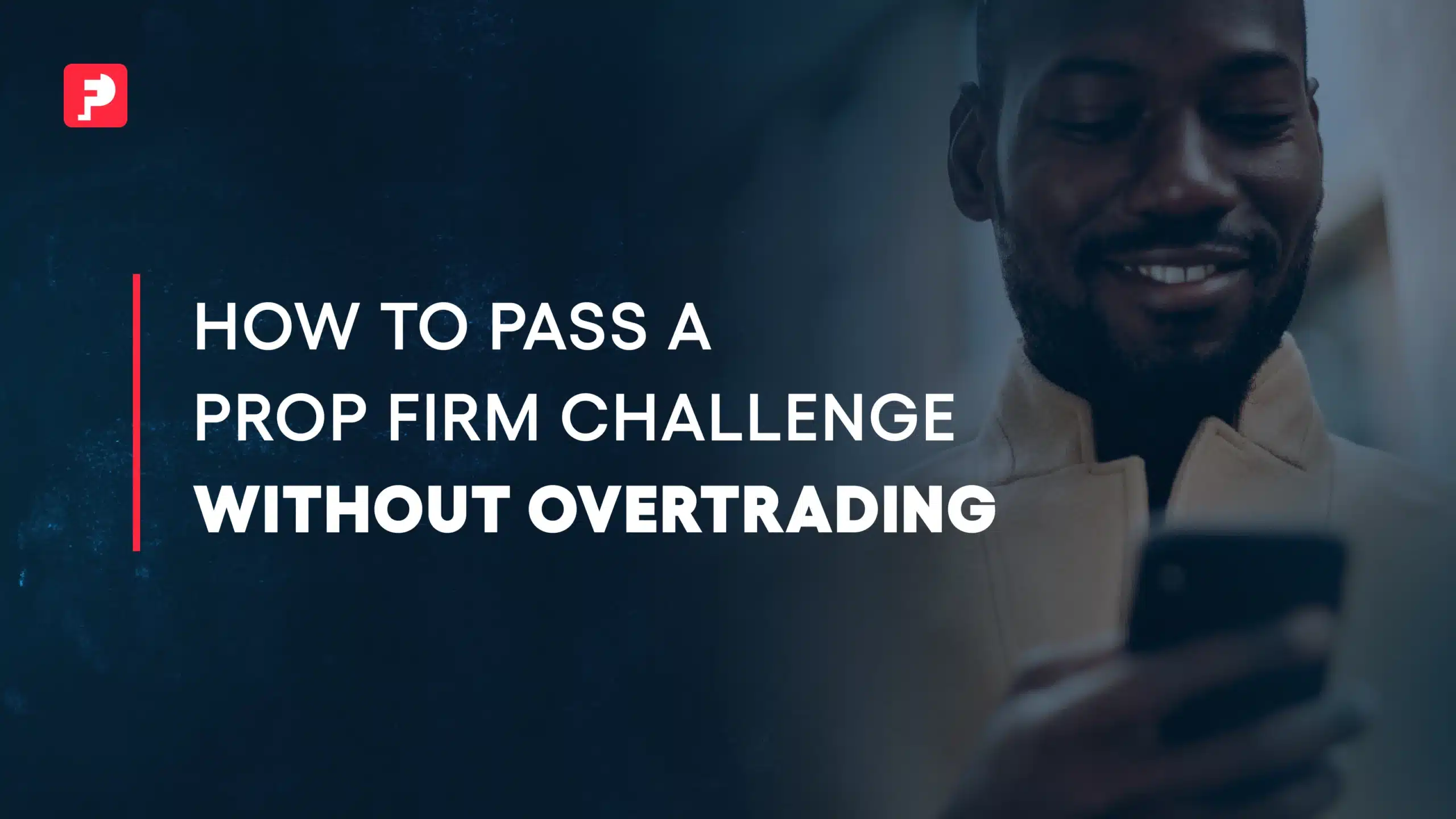Passing a prop firm challenge is one of the biggest steps toward becoming a funded trader. The evaluation period is designed to test not just your trading skills but also your discipline and risk control. Yet many traders fail, not because they lack a strategy but because they overtrade.
Overtrading, taking too many trades without clear, high-quality setups, is one of the fastest ways to breach your firm’s drawdown rules and lose your account. This article will explain why overtrading happens, how it damages your chances of passing, and practical steps to avoid it so you can complete your challenge with precision.
Why Overtrading is a Challenge Killer
In a prop firm evaluation, every trade matters. Your account is subject to strict limits, such as a maximum daily drawdown and an overall drawdown. If you breach either, your account is closed – no second chances.
Overtrading increases the number of trades exposed to market risk, which raises the probability of hitting those limits. It also often leads to:
- Emotional decision-making – entering trades out of frustration or excitement instead of analysis.
- Risk creep – increasing position sizes to make up for losses.
- Strategy drift – abandoning your plan after a few losing trades.
Common Triggers of Overtrading
Even disciplined traders can fall into the overtrading trap. Here are some of the most common causes:
- Fear of Missing Out (FOMO): Seeing a price move without you and jumping in late.
- Revenge Trading: Trying to recover losses immediately after a losing trade.
- Overconfidence: Increasing trade frequency after a winning streak.
- Boredom Trading: Taking trades just to “stay active” in the market.
Understanding your personal triggers is the first step toward avoiding them.
The Impact on Challenge Success
Breaching a daily drawdown is the most common way traders fail a prop firm challenge. For example, if your daily limit is 5% on a 100,000 USD account, you cannot lose more than 5,000 USD in one day, including both realised and floating losses.
One day of overtrading, especially with multiple positions open during volatile market conditions, can push you past that limit quickly.
How to Avoid Overtrading in a Prop Firm Challenge
- Set a Maximum Number of Trades per Day – Limiting yourself to three to five trades per day forces selectivity. This prevents impulse trades and encourages waiting for the best setups.
- Use a Pre-Trade Checklist – Before entering any trade, confirm:
- Does this setup align with my strategy?
- Is the risk-to-reward ratio favourable (at least 1:2)?
- Am I trading within my daily risk limit?
- Lower Your Daily Loss Cap – If your firm allows a 5% daily drawdown, aim for a personal limit of 2 to 3%. This gives you a buffer in case of slippage or sudden volatility.
- Accept No-Trade Days – Some of the best traders in the world take days off when conditions are not right. Sitting on the sidelines can protect both your account and your mental capital.
- Track Every Trade – Keeping a trading journal, including entry and exit reasons, emotional state, and outcome, can help you identify overtrading patterns before they become costly.
Practical Scenario: Avoiding the Spiral
Imagine you are two trades into the day, both losses, down 1.5%. Your plan says you can trade up to 3% daily loss, but you feel tempted to “win it back.” You take a high-risk setup outside your strategy, lose another 1.8%, and now you are at a 3.3% loss for the day.
If the market spikes against you, that small extra could breach your firm’s 5% limit, ending your challenge early. Stopping at 3% would have left you safe to trade the next day.
The Psychology of Overtrading
Overtrading is rarely just about market conditions; it is often a response to psychological pressure.
- After a loss – the urge to recover quickly can override logic.
- After a win – the confidence boost can lead to overestimating your edge.
- During slow markets – the desire for action can lead to forced trades.
The solution is to treat trading like risk management first, profit-making second.
For a deeper dive into mindset, read our guide: Top 10 Trading Practices of Highly Successful Forex Traders.
Risk Management as Your Safety Net
Prop firm challenges are as much about survival as they are about profit. By keeping position sizes reasonable, respecting your loss limits, and maintaining patience, you dramatically increase your chances of success.
For more detailed strategies, see Mastering the Prop Trading Challenge: How to Pass & Get Funded.
Final Word: Pass with Precision, Not Pressure
Passing a prop firm challenge requires discipline, patience, and strict control over your trading frequency. Overtrading is a silent account killer. Avoid it by having clear rules, tracking your performance, and knowing when to stand aside.
Start your FunderPro Challenge today and put these principles into practice. Trade with precision, not pressure.





